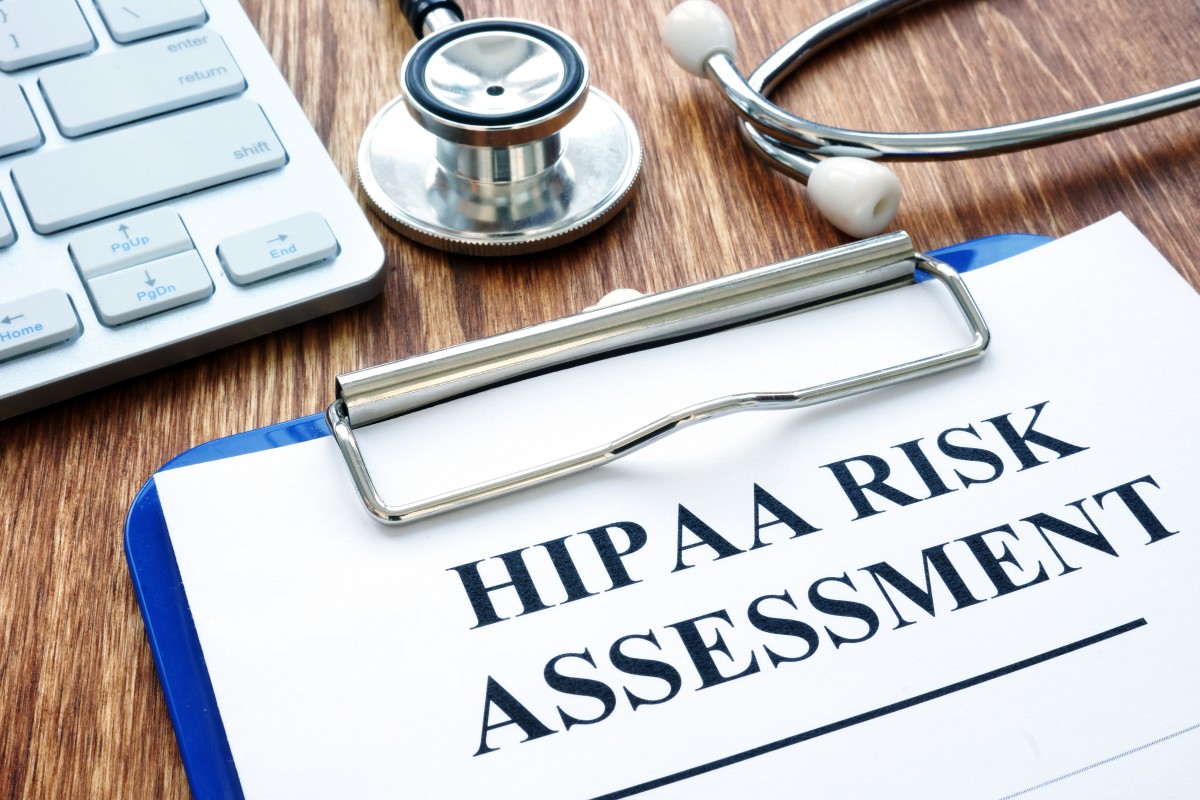Using Patient Education Videos to Support Preventive Care Strategies
As a healthcare provider, you know prevention saves lives. From routine screenings and lifestyle counseling to vaccinations and early detection,...
5 min read
Robert McDermott Jun 6, 2024 12:41:00 PM
 Just as no man is an island, no healthcare provider is either. When it comes to holistic healthcare, patients often have a team of providers, necessitating communication between healthcare teams and the patient. Similarly, no healthcare provider works in isolation either; in fact, to provide services and focus on patient care, providers need help from vendors and partners. And, when it comes to protecting patient data, those vendors and partners must adhere to regulatory compliances as well. That’s where the HIPAA Business Associate Agreement (BAA) comes in.
Just as no man is an island, no healthcare provider is either. When it comes to holistic healthcare, patients often have a team of providers, necessitating communication between healthcare teams and the patient. Similarly, no healthcare provider works in isolation either; in fact, to provide services and focus on patient care, providers need help from vendors and partners. And, when it comes to protecting patient data, those vendors and partners must adhere to regulatory compliances as well. That’s where the HIPAA Business Associate Agreement (BAA) comes in.
Quick Links:
A HIPAA Business Associate Agreement (BAA) is a legally binding document required under the Health Insurance Portability and Accountability Act (HIPAA) between a HIPAA-covered entity and a business associate. This agreement is crucial in ensuring that both parties comply with HIPAA regulations concerning the handling and protection of Protected Health Information (PHI).
The BAA is essential for legal and regulatory compliance and helps protect patient privacy and the security of PHI or ePHI in the healthcare ecosystem. It establishes clear expectations and responsibilities, reducing the risk of data breaches and legal issues as it relates to the handling of patient data.
Let’s break that down a bit.
To start, a “covered entity” includes healthcare providers, health plans, and healthcare clearinghouses that create, receive, maintain, or transmit PHI.
“Business associates,” on the other hand, are parties that covered entities do business with. They’re defined as any entity or person that performs functions, activities, or services for a covered entity involving the use or disclosure of PHI. This might include IT service providers, billing companies, and cloud storage providers.
Because the HIPAA BAA is critical to ensuring compliance with HIPAA, it must cover the obligations and responsibilities of both covered entities and business associates. More specifically, it must address the safeguards to protect data and the procedures for addressing breaches and other compliance issues.
To address those needs, standard BAAs include a few key provisions such as:
In short, a HIPAA BAA is critical for complete HIPAA compliance, helping to ensure that any third party handling PHI for a covered entity does so securely and in accordance with the law.
 Why You Need a Business Associate Agreement
Why You Need a Business Associate AgreementFor healthcare providers, safeguarding patient information is paramount. With rising cyber attacks and evolving cyber threats, maintaining safeguards across the chain of providers and vendors is even more important.
The necessity of a BAA arises from the collaborative nature of healthcare operations. Healthcare providers often rely on external vendors for various services. These vendors, classified as business associates, may handle PHI in the course of their work.
Without a BAA, there is no formal guarantee that these business associates will adhere to the stringent data protection standards required by HIPAA. As noted above, the BAA obligates the business associate to implement appropriate safeguards, report any data breaches that may expose ePHI, and ensure the confidentiality, integrity, and availability of patient data.
Finally, a BAA clearly delineates the responsibilities and liabilities of both parties in the event of a data breach. It specifies the procedures for breach notification and the measures to be taken to mitigate any damage caused by unauthorized access to PHI. Having a response plan in place is an essential part of a security strategy and the BAA ensures your partners and vendors have that plan in place.
This not only helps maintain compliance with HIPAA but also builds a foundation of trust between healthcare providers and business associates. By clearly outlining the expectations and obligations, a BAA helps prevent misunderstandings and ensures that all parties are committed to protecting patient information. Ultimately, having a BAA in place is crucial for minimizing risks, maintaining compliance, and upholding the integrity of patient data in the healthcare ecosystem.
A HIPAA Business Associate Agreement (BAA) is crucial for healthcare organizations and their business associates who handle protected health information (PHI). Here are the top benefits of having a HIPAA BAA:
1. Legal Compliance
A HIPAA BAA ensures that both covered entities and their business associates comply with HIPAA regulations. This agreement outlines each party's responsibilities to protect PHI, helping to avoid legal issues and potential fines.
2. Enhanced Data Security
The BAA mandates specific security measures that business associates must implement to safeguard PHI. This includes administrative, physical, and technical safeguards that help prevent data breaches and unauthorized access.
3. Defined Responsibilities and Accountability
A BAA clearly delineates the responsibilities of each party regarding the handling, storage, and transmission of ePHI. This clarity helps to ensure accountability and reduces the risk of misunderstandings or lapses in data protection.
4. Risk Management
By defining the security protocols and procedures to be followed, a BAA helps in managing and mitigating risks associated with ePHI. This proactive approach can significantly reduce the likelihood of data breaches and other security incidents.
5.Trust and Partnership
Having a BAA in place fosters trust between covered entities and their business associates. It demonstrates a commitment to protecting patient data, which can strengthen business relationships and enhance collaboration.
6.Auditing and Monitoring
A BAA often includes provisions for regular audits and monitoring of the business associate's compliance with HIPAA standards. This continuous oversight helps to identify and address potential security gaps promptly.
7. Breach Notification
The BAA typically outlines procedures for notifying the covered entity in the event of a data breach. This ensures timely reporting and response, minimizing potential damage and complying with HIPAA's breach notification rules.
8. Reputation Protection
Ensuring compliance with HIPAA through a BAA can protect both the covered entity’s and the business associate’s reputations. It shows patients and clients that the organization takes data security seriously, which is crucial in maintaining trust and credibility.
9. Financial Protection
Non-compliance with HIPAA can result in significant fines and penalties. A well-structured BAA helps in avoiding these financial repercussions by ensuring that all parties are adhering to required standards and protocols. In just one example, an Orthopedic clinic in North Carolina was fined $750,000 for “handing over PHI for approximately 17,300 patients to a potential business partner without first executing a business associate agreement.”
10. Standardization of Practices
A BAA helps standardize data protection practices across various business associates, ensuring a consistent approach to handling PHI. This uniformity simplifies compliance management and enhances overall data security.
Finally, it’s important to note that a HIPAA Business Associate Agreement is not just a “nice to have”; it’s a legal requirement and a comprehensive tool for ensuring robust data protection, fostering trust, and maintaining compliance in the healthcare industry.
If you’re looking for administrative and healthcare workflow support, working with a team who understands the healthcare landscape can be vital, especially when it comes to security.
iCoreConnect has built a full platform designed to assist healthcare teams improve efficiency, reduce costs, improve patient experience, and enhance security while addressing security vulnerabilities and helping to reduce risks.
Ready to see how a team focused on healthcare can help you focus on your practice? Book a demo with our team or reach out so we can help you find solutions that improve your practice while protecting patient data.

As a healthcare provider, you know prevention saves lives. From routine screenings and lifestyle counseling to vaccinations and early detection,...

There’s no denying that the AI boom is here. The American Medical Association reports that 66% of physicians are currently using artificial...

If only managing your practice’s revenue cycle came with a crystal ball. You could spot claim denials before they happen, predict when patients might...

When patients come into your practice, your business team has them fill out a lot of paperwork, whether manually or digitally. The data provided...

How confident are you that your cloud storage solution is fully HIPAA-compliant? If you’re like many healthcare providers, you might assume your data...

There’s an old adage that states “What you don’t know can’t hurt you.” While that might be true in quite a few circumstances, it certainly doesn’t...